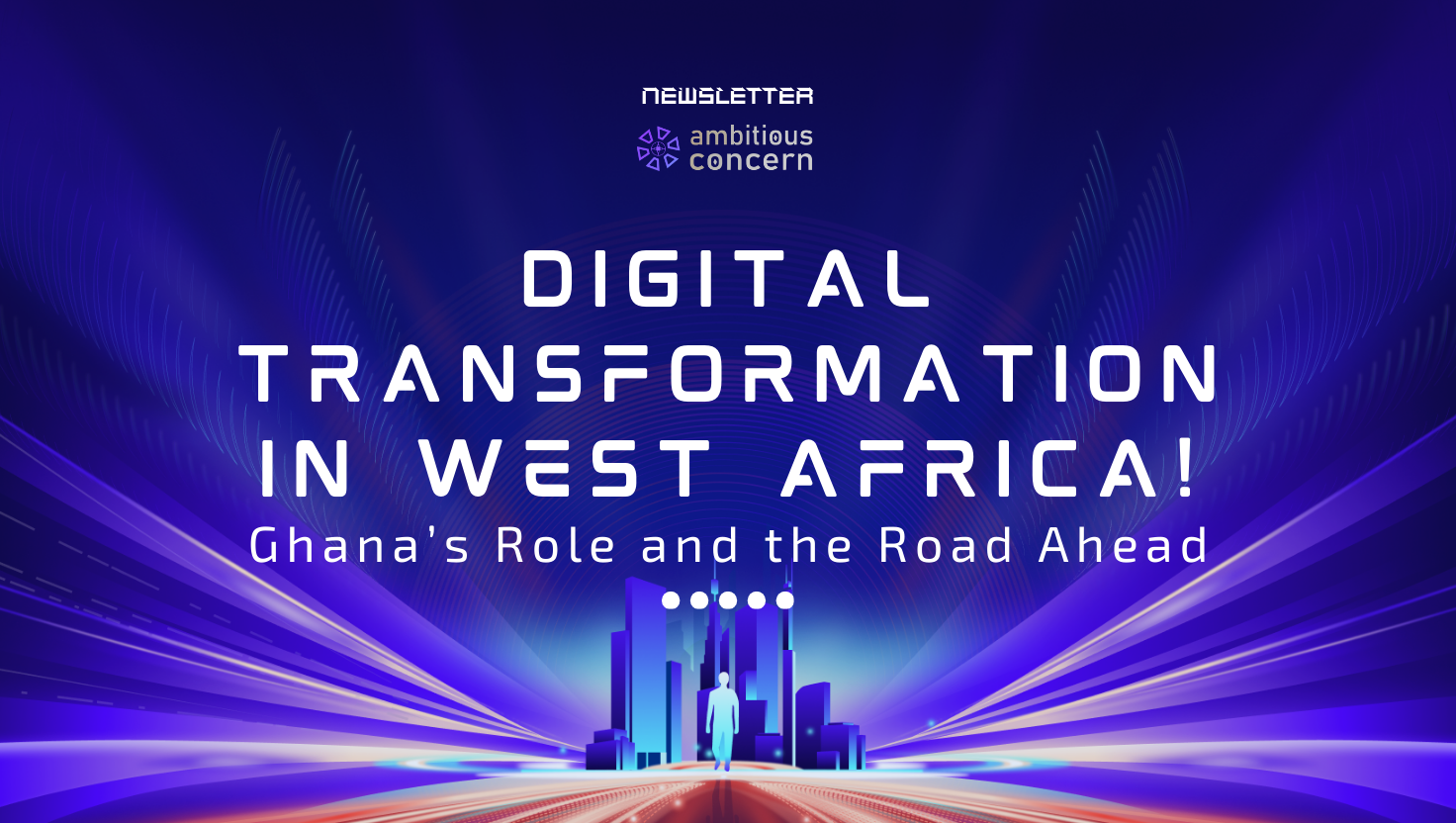Digital Transformation in West Africa!
Ghana’s Role and the Road Ahead

Digital Transformation in West Africa!
West Africa is experiencing a rapid wave of digital transformation that is reshaping economies, societies, and governance. Ghana stands at the center of this movement, leveraging technology to drive inclusion, innovation, and development. Yet while opportunities abound, challenges remain that must be addressed to ensure a sustainable digital future.
The Promise of Digital Transformation
Fintech and Financial Inclusion
One of the most visible impacts of digital transformation in West Africa is the growth of fintech. In Ghana, mobile money services such as MTN MoMo have become a lifeline for millions, enabling payments, savings, and transfers without the need for traditional banking. Nigeria’s fintech scene, led by companies like Flutterwave and Paystack, has also attracted international recognition and investment. These innovations are not only making financial services accessible but also fueling entrepreneurship and commerce across the region.
Health Technology and Digital Care
Healthcare systems in Ghana and across West Africa are increasingly integrating digital tools. Telemedicine platforms, electronic health records, and AI-powered diagnostics are expanding access to care, especially in rural areas. For example, initiatives in Ghana are enabling remote consultations and efficient management of patient data, trajecting health patterns using smart apps like Concerncare (launched and deploying to all store soon) making healthcare delivery more effective.
Education and Skills Development
The rise of e-learning platforms has transformed how education is delivered. In Ghana, platforms like eCampus provide digital tools for both teachers and learners, while Nigeria and Senegal are seeing similar growth. This shift not only broadens access to education but also prepares young people with the digital skills needed to compete in the global economy.
Agriculture and Smart Farming
Agriculture remains the backbone of many West African economies. Digital platforms are helping farmers in Ghana access real-time market prices, weather forecasts, and mobile-based financial services. In Côte d’Ivoire and Nigeria, similar tools are driving efficiency and connecting farmers directly to buyers, reducing exploitation by middlemen.
Governance and Smart Infrastructure
Governments are also digitizing their operations to increase efficiency and transparency. Ghana’s digital address system and digital ID initiatives are improving service delivery, while Rwanda’s progress in e-governance provides a model for the region. These advancements make public services more accessible and reduce bureaucracy.
The Challenges on the Path
Despite the progress, several obstacles stand in the way of full digital transformation:
- Infrastructure Gaps: Reliable electricity and high-speed internet remain limited in many parts of West Africa, especially rural areas.
- Cybersecurity Risks: As digital adoption grows, so does the threat of cybercrime. Ghana and its neighbors must strengthen cybersecurity frameworks to protect data and systems.
- Regulatory Barriers: Inconsistent or outdated regulations can stifle innovation. A harmonized regional approach would better support digital trade and cross-border collaboration.
- Skills Gap: While Africa has a young and tech-savvy population, there is still a shortage of advanced digital skills needed for high-level innovation.
- Digital Inequality: Many low-income communities remain excluded from the benefits of digitalization, creating a risk of widening inequality.
Ghana’s Role and the Regional Future
Ghana is uniquely positioned to lead West Africa’s digital transformation. With its growing startup ecosystem, expanding internet penetration, and government commitment to digitization, the country has become a hub for innovation. At the same time, collaboration with regional partners can amplify progress and build resilient systems that benefit the entire continent.
Private sector players such as Ambitious Concern are part of this journey, developing solutions that address local needs while contributing to the broader ecosystem. Whether in digital health, fintech, or education, Ghanaian companies are proving that locally built technology can have regional and global impact.
Conclusion
Digital transformation is not a distant goal; it is happening now across West Africa. Ghana’s leadership, combined with innovation in neighboring countries, presents a powerful opportunity to leapfrog traditional barriers to development. However, realizing this potential requires continued investment in infrastructure, skills, and policies that promote inclusivity and resilience.
The future of West Africa’s digital economy will be shaped by how well countries like Ghana harness technology not just for growth but for equitable progress that uplifts every community.
Fresh Perspectives, Timeless Wisdom Explore Our Latest Blog Edition
View AllJoin our newsletter to stay up to date on features and releases
Stay in the loop with exclusive updates, sneak peeks, and insider tips that will elevate your experience. Don’t miss out



